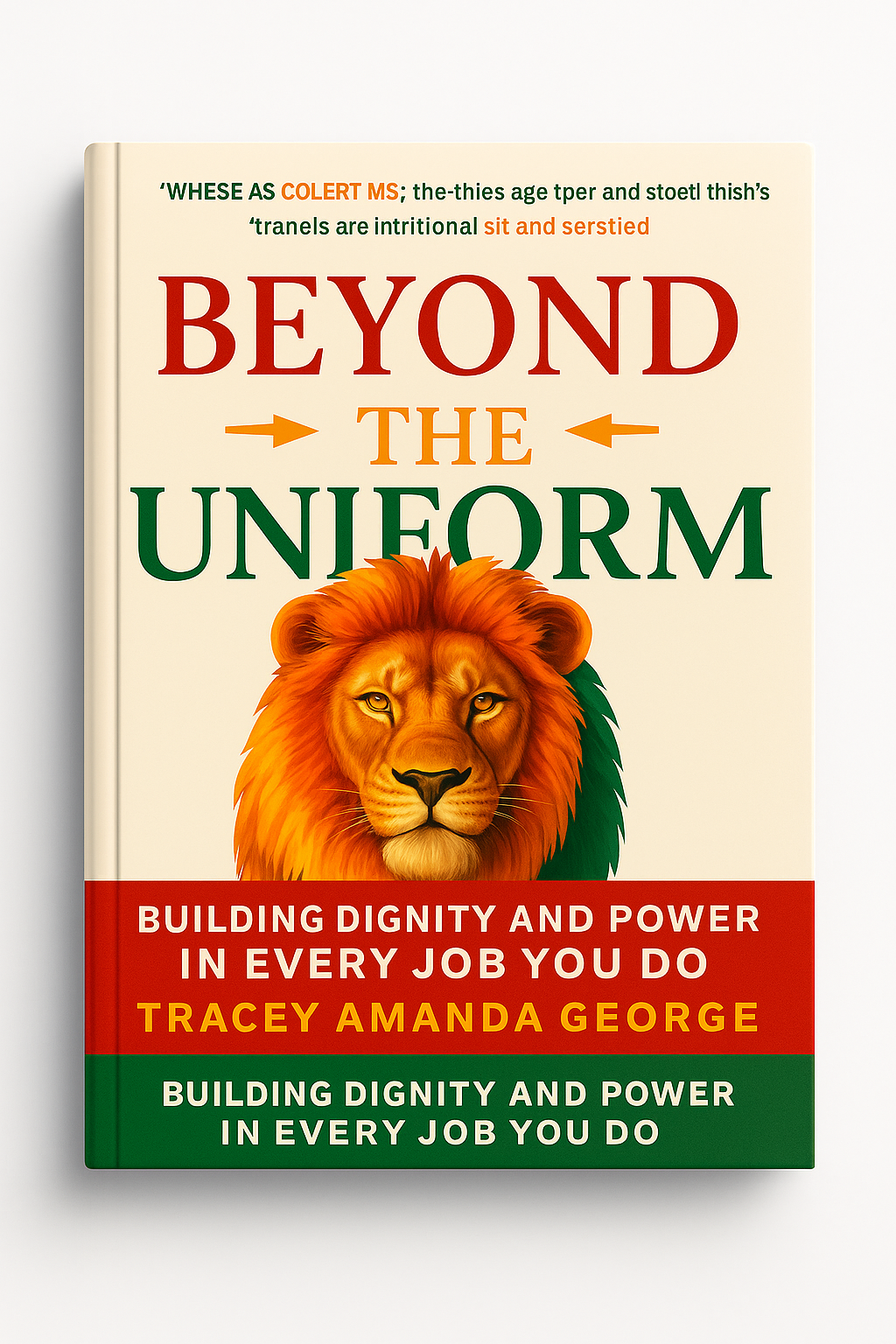Beyond the Uniform
Disclaimer
This book is based on lived experiences and research.
It is not intended as legal advice, and laws may differ depending on your country.
Names and identifying details have been changed to protect privacy.
Readers are encouraged to seek professional or legal guidance where necessary
Dedication
To every worker who has stood their ground, even when the cost was high.
To the nurses, guards, cleaners, vendors, public servants, and police officers
whose strength holds society together while their wages too often fall short.
This page belongs to you — the unseen, the unheard, and the unshaken.
May your courage echo beyond the gates, the stalls, the hospitals,
and every place where labour is undervalued but never without dignity.
Chapter 1:
Know Yourself
The first battlefield in the world of work is not the office or the gatehouse. It is inside you. When you walk into a job—whether as a cleaner, a guard, a seller, or a clerk—you carry not only your uniform but your identity, your dignity, and your sense of worth. If you don’t know who you are, others will try to define it for you. And in most workplaces, that definition will be smaller than what you deserve.
The Value of Self-Worth
Employers often treat workers as if they are replaceable parts. But you are more than the role you play. You are not just “the guard on the night shift,” or “the cleaner on floor two.” You are a human being with value, intelligence, and dreams. Knowing yourself means refusing to let your job title shrink your identity.
Workers who understand their own worth carry themselves differently. They don’t accept abuse as normal. They speak with a voice that carries weight. When you stand rooted in self-knowledge, exploitation has a harder time finding ground.
Stories from the Workplace
One woman working as a hotel cleaner described how she carried her own food every night. While others depended on whatever meal the kitchen sent, she cooked at home and packed her bag. That simple act of self-reliance protected her from manipulation. When food was withheld as punishment, she was never left hungry. She knew herself, and that meant she knew her needs.
In security work, guards often face long hours—8, 14, 16, even 24-hour shifts. Some bosses delay pay, some skip NIS contributions, some push workers beyond limits. A guard who knows his worth may not be able to stop exploitation instantly, but he will keep records, demand his rights, and prepare for the day he stands up. Knowledge of self turns frustration into strategy.
Practical Tools for Self-Knowledge
Write a Worker’s Journal. At the end of each shift, note down your hours, tasks, and feelings. This builds awareness of patterns—when you are most tired, when you feel most strong.
Name Your Strengths. Write a list of skills beyond your job title: honesty, quick thinking, ability to defuse conflict, cooking, caring for others. These are assets no employer can take away.
Identify Your Boundaries. What lines will you never cross? For example: “I will not accept harassment.” or “I will not depend fully on company food.” Boundaries strengthen courage.
The Law and Dignity
Labour law in Guyana recognizes the right to dignity at work. The Prevention of Discrimination Act (1997) protects workers from being treated unfairly because of race, gender, or social status. The Occupational Safety and Health Act (1997) affirms that all workers deserve a safe workplace. But no law can protect you if you don’t first believe you deserve protection.
Knowing yourself gives those laws meaning. Without self-knowledge, they are just words on paper. With it, they become your shield.
Reflection Questions
Who am I outside of my job?
What are three things I bring to work that no one else can?
What is one line I will never allow an employer to cross?
Closing Note for the Chapter:
To know yourself is to refuse invisibility. You may wear a uniform, but you are not the uniform. You are the worker inside it, standing tall, aware of your value. And that knowledge is the first weapon against exploitation.
🌿 Explore More Natural Remedies
Click here to read more articles